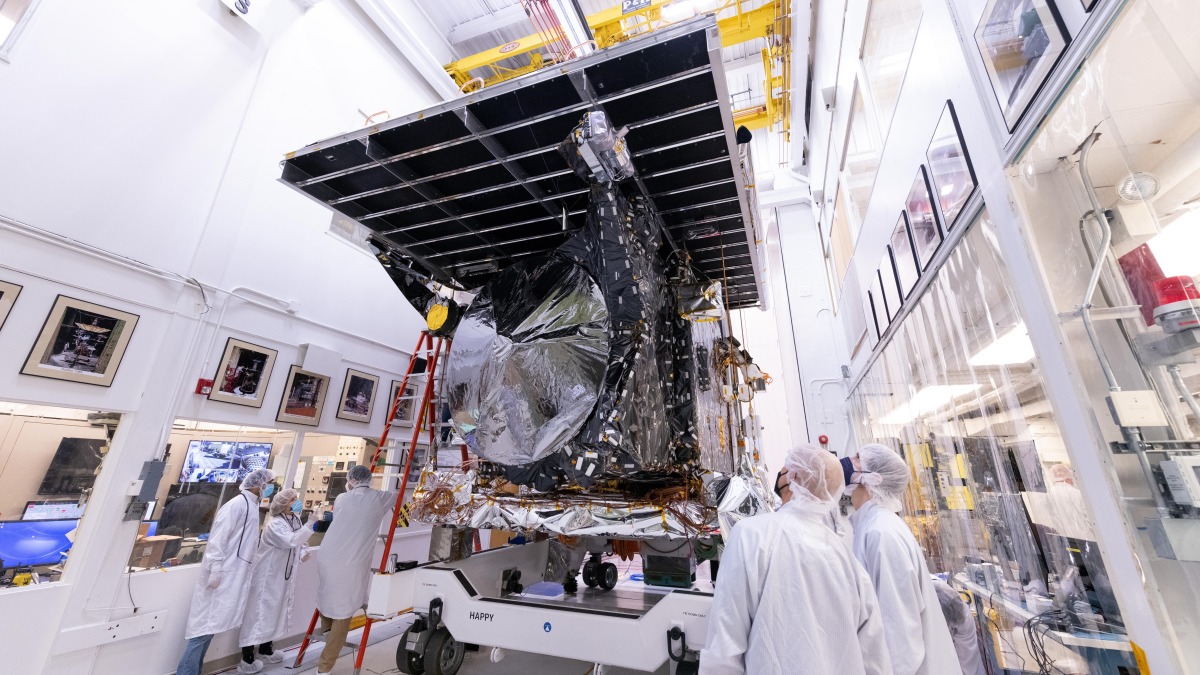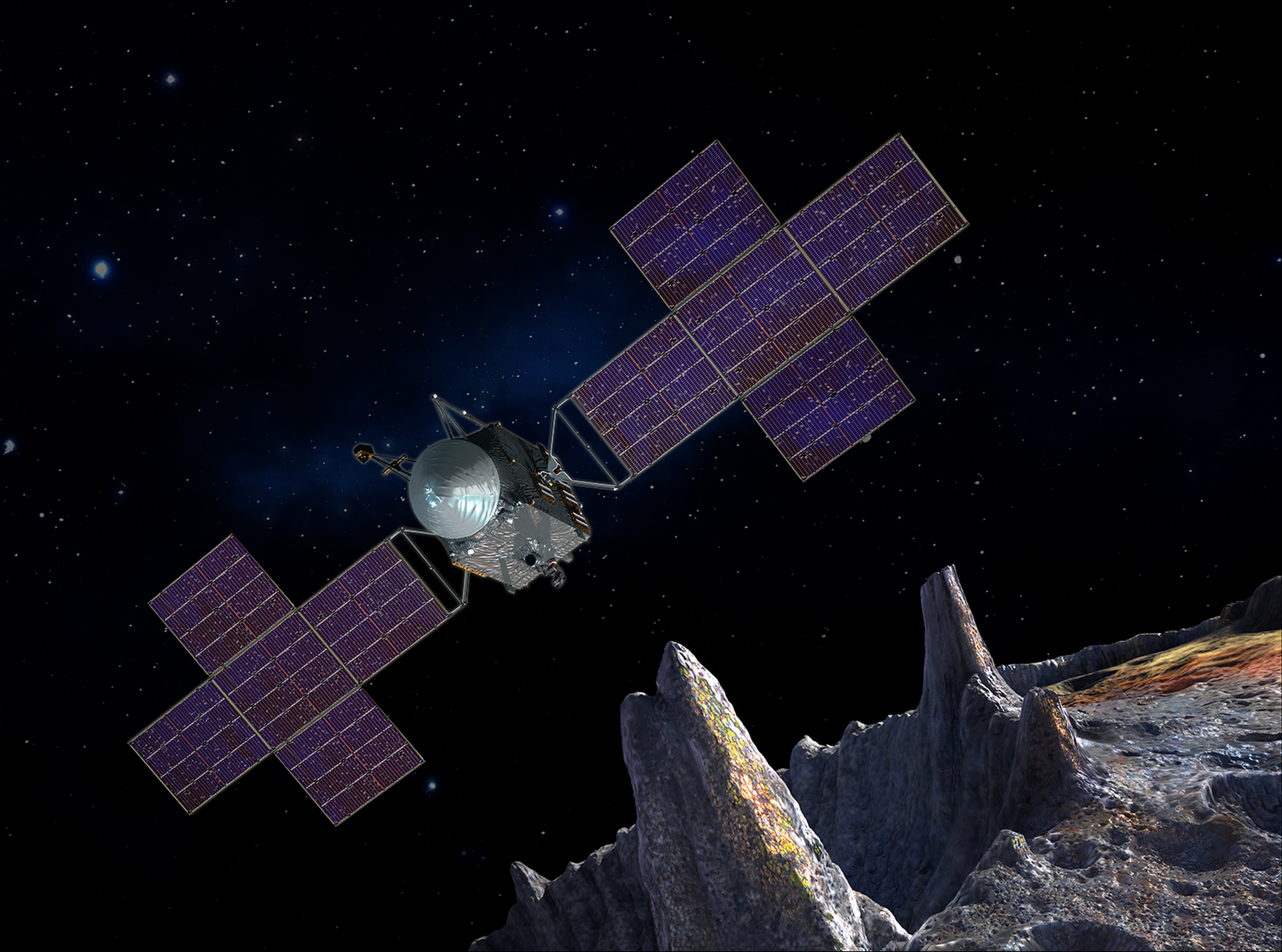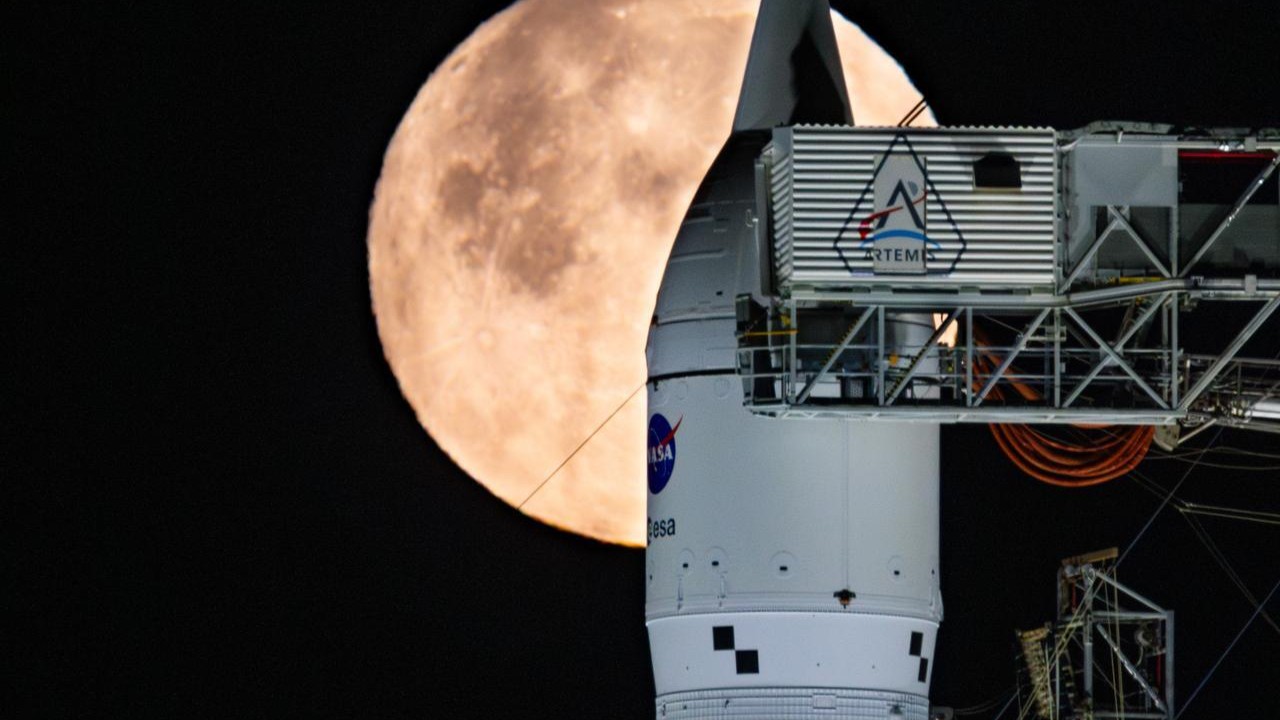NASA's Psyche asteroid spacecraft passes shake-and-bake test and meets the press
Psyche is scheduled to reach space in August to start its journey to a metal asteroid.

Breaking space news, the latest updates on rocket launches, skywatching events and more!
You are now subscribed
Your newsletter sign-up was successful
Want to add more newsletters?

Delivered daily
Daily Newsletter
Breaking space news, the latest updates on rocket launches, skywatching events and more!

Once a month
Watch This Space
Sign up to our monthly entertainment newsletter to keep up with all our coverage of the latest sci-fi and space movies, tv shows, games and books.

Once a week
Night Sky This Week
Discover this week's must-see night sky events, moon phases, and stunning astrophotos. Sign up for our skywatching newsletter and explore the universe with us!

Twice a month
Strange New Words
Space.com's Sci-Fi Reader's Club. Read a sci-fi short story every month and join a virtual community of fellow science fiction fans!
NASA's Psyche asteroid probe clean room in California is seeing a lot of action these days as the spacecraft gets set for its launch in August.
On top of engineers subjecting the asteroid-bound mission to "shake-and-bake" procedures, the spacecraft got visitors from the media at NASA's Jet Propulsion Laboratory (JPL) in Pasadena.
The Psyche asteroid mission will be tasked with exploring the 140-mile-wide (225 kilometers) metallic asteroid 16 Psyche, but before leaving Earth it must pass a rigorous suite of testing. For example, engineers spent 18 days simulating the coldest and warmest conditions in flight, to make sure no key components would have trouble in the harsh conditions of space.
Then came dynamics testing, to make sure the spacecraft would be up to the vibration, acoustics and shock associated with launch and deployment. (The spacecraft received sound waves 100 times louder than a typical rock concert, JPL stated, just in case you're wondering how metal the mission will be.)
Related: NASA's mission to metal asteroid Psyche in pictures
Psyche received a clean bill of health following its various exposures in recent weeks, on top of earlier vacuum testing and simulations of the electrical and magnetic conditions in space. In all, the spacecraft has been running the gauntlet since December to prove it can make the mission's objectives.
"The tests show that, yes, the spacecraft is flightworthy," Randy Lindemann, the JPL engineer who oversaw Psyche’s dynamics testing, said in the same statement.
Breaking space news, the latest updates on rocket launches, skywatching events and more!
Only a handful of people are allowed in the clean room to reduce the chance of exporting Earth's bacteria to space. A handful of media were allowed a glimpse April 11, but they needed to complete strict procedures before getting close.
"Reporters wiped down their equipment with isopropyl alcohol, and donned protective smocks and hair coverings, before entering the High Bay 2 clean room," stated JPL on April 11, the same day as the visit.
The next stop for Psyche will be NASA's Kennedy Space Center in Florida, to prepare for a launch at nearby Cape Canaveral Space Force Station. The mission is expected to launch in August, swing past Mars nine months later to pick up speed, and then arrive at the asteroid in 2026.
Follow Elizabeth Howell on Twitter @howellspace. Follow us on Twitter @Spacedotcom and on Facebook.

Elizabeth Howell (she/her), Ph.D., was a staff writer in the spaceflight channel between 2022 and 2024 specializing in Canadian space news. She was contributing writer for Space.com for 10 years from 2012 to 2024. Elizabeth's reporting includes multiple exclusives with the White House, leading world coverage about a lost-and-found space tomato on the International Space Station, witnessing five human spaceflight launches on two continents, flying parabolic, working inside a spacesuit, and participating in a simulated Mars mission. Her latest book, "Why Am I Taller?" (ECW Press, 2022) is co-written with astronaut Dave Williams.

